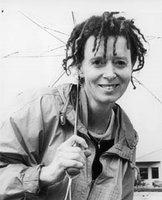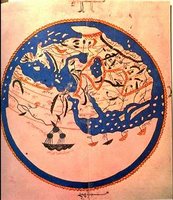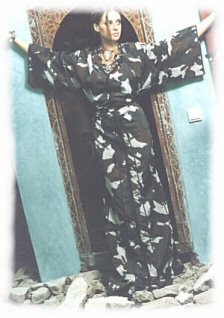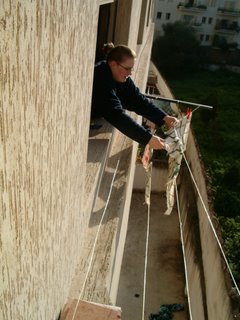Honest
 I want to use this word to describe Anne Lamott. I could use lots of other words, of course. Like funny, smart, quirky, irreverent, and wise. Or even paranoid, narcissistic, vulgar, imbalanced, and preachy--but always funny as hell.
I want to use this word to describe Anne Lamott. I could use lots of other words, of course. Like funny, smart, quirky, irreverent, and wise. Or even paranoid, narcissistic, vulgar, imbalanced, and preachy--but always funny as hell.When I teach, I rely on her writing process from Bird By Bird. I tell the students that all first drafts are very bad. Rough first drafts are always only the beginning of something better, and everything has to begin somewhere, so why not start with, as Lamott calls it, a "shitty first draft"?
But as I read her latest book, Plan B: Further Thoughts on Faith, which my mother got for us, I’m struck most by Lamott’s honest writing voice.
Now, anthropologists are always talking about authenticity and genuineness. We like to learn about the cultural economy of authenticity, how this sacred substance is reverently bought and sold in the most "inauthentic" global culture markets.
But writing with an authentic, honest voice is much harder to put one’s finger on. I remember Groucho Marx (and his student Bill Clinton): "The most important quality of political success is sincerity. When you can fake that, you've got it made.."
I’m always getting in trouble, being misunderstood in my writing voice. It’s a painstaking process, when I take the time to do it—a choice of just the right words, before I can approach a tone, a style, a readable representation of the voice of a speaker who’s much more real than me, funnier, wiser, smarter—someone that I’m always looking to make myself into, on paper. Like Coca-Cola, an identity that’s even better than the real thing. I don’t know Anne Lamott, so I can’t gauge the extent to which the authorial persona and the writer coincide. But I like the persona a lot.
So definitely read the book. Even if you don’t agree with her as much as I do, Anne Lamott is at least funny, with about a dozen laugh-out-loud moments for me, which is really high. There’s a lot of wisdom, too. Here’s a quotation that sums up what I think she’s trying to say throughout most of the book. She has taken a friend who’s dying of cancer out for a weekend ski trip:
"Hope is not about proving anything. It’s about choosing to believe this one thing, that love is bigger than any grim, bleak shit that anyone can throw at us."







